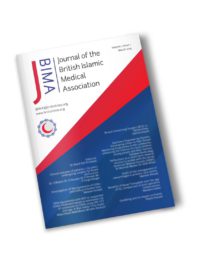
The book ‘Akhlaq-Al-Tabib’ (literal translation: Physician’s manners) or ‘Medical ethics’ is predominantly a treatise, copied from an original letter written in Arabic by Al Razi (also known as Rhazes, Ar-Razi or Rasis) 854–925 CE to one of his students. The valuable 16th century copy was unearthed by the book’s editor during his PhD’s research who decided to publish the manuscript with his own commentary, making the document more accessible to the modern-day readers and reconnect it to Al Razi’s more known works.
The book starts with a prologue, introducing the readers to Al Razi’s upbringing and what was recorded of his genius and personality. The editor carefully paints an image of the pious philosopher widely known as ‘Galen of Arabs’, who has developed an interest in medical sciences later in his thirties. This unique classical education endowed him with an unparalleled humanistic outlook on medicine, making him a pioneer in medical ethics of his era and centuries to come.
The book divides the treatise into 25 sections according to their order in the original script covering a myriad of situations any physician may come across in their practice; 17 of these are clear do’s and don’ts for the physician to follow. Although the script is aimed toward medical practitioners, it must have made a useful read for legislators, patients and even normal citizens on what to expect from their medical carers.
The personal letter explains the responsibility of physicians toward themselves /patients alike and provides advice on how to approach ailments, patients and practice medicine as ethically as possible. The experienced physician shares his practice ethos in a pragmatic and engaging style laced with personal anecdotes and experiences of his own.
What attracts the reader’s attention is the simple language used by Al Razi throughout the treatise, except for a few terms -which the editor does a great job explaining in the footnotes- scattered across, it could easily pass as a document written in the commentary adds another 21st century. The editor’s dimension to the script that aids readers understanding, sometimes it’s anecdotal from Al Razi’s life or his other publications and at others it provides cultural references to the era he lived in.
Al Razi starts with endearing praise and prayers for his student as he embarks on a new position to work for an unnamed prince. Al Razi doesn’t shy away from laying the facts as they are, the task that awaits his student is very difficult and demanding but as any good instructor, he aims to prepare the student to the real world and equip him with the devices needed to be an independent ethical practitioner.
As medicine is a very challenging unpredictable profession, the student is advised to control the thing he definitely can, himself. Al Razi highlights the importance of self-discipline multiple times throughout the letter, this includes anything that can hinder the physician’s ability to fulfil his duties or affect his ethical and scientific credibility. Various sections were dedicated to warn from egoism, alcohol dependency and using experimental treatments on patients.
Discipline for Al Razi manifests itself in various forms, for instance, the commitment of continuous study and development of the physician’s skills. In his opinion, practitioners should always keep up-to-date with new advancements in the field and be prepared to apply their knowledge in any emergency that may arise.
After a brief description of disease types and how to approach treatment courses, he moves to set the foundations of the physician-patient relationship. Al Razi strongly stresses on morality of the physicians, where they should always demonstrate honesty, kindness, humility and respect to a patient’s privacy regardless of their gender or age.
Although the letter was aimed at a newly appointed court doctor, Al Razi reminds the student of his moral responsibility to treat all patients with no exceptions, independently of their class or status, especially the poor.This responsibility does not expire after diagnosing and administering the treatment but extends to attending the patients until stability, giving examples of emetics and laxatives dangers if given unmonitored.
Similar to his contemporary physicians of the Arabo-Islamic era, Al Razi demonstrated support for the prophylactic and preventative methods before illness take place, which are accomplished by regular check-ups in the absence of any disease. This stretches to include a dedicated section on the importance of a patient’s diet, then he provides examples of food combinations that were believed to be incompatible and should be avoided.
Meticulous examination is essential prior to diagnosing any patient. Al Razi speaks of refusing to perform ‘blood release’ a common practice in his day without checking the patient’s history, pulse and urine. He mentions two occasions where he saved patients using less drastic treatments.
The majority of the letter focuses on physicians’ duties; however, Al Razi emphasises the critical role these individuals play in society in multiple sections. Two sections were aimed to regulate the patient’s relationship with their physicians, where patients must always show respect and disclose their medical history since it will assist treatment.
Al Razi warns from dealing with charlatans and crooks who lack the knowledge and the moral background to be entrusted with people’s money or lives. These fake healers were described as illusionists, who take advantage of people ignorance to make a quick gain.
Although ‘Akhlaq-Al-Tabib’ might be considered dated, it offers a useful insight of the medical ethics evolution over time. Throughout the book, readers will notice that Al Razi, has built on the codes of practice by his antiquity predecessors (Hippocrates and Galen) and formulated updated guidelines of the ‘ideal’ physician’s qualities, which are very similar to the ones followed by the modern day medical practitioners, making him and his colleagues from the same era the forbearers of medical ethics before the term was coined for the first time in the 1800s by Percival. The field would hugely benefit from a translation of this important historical document, as many of Al Razi’s untranslated publications.

